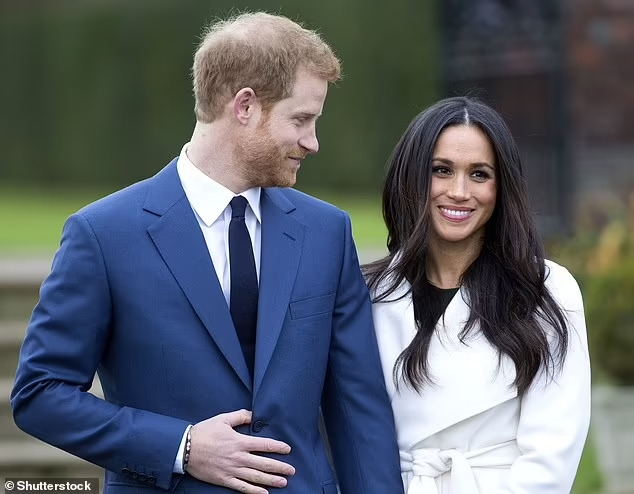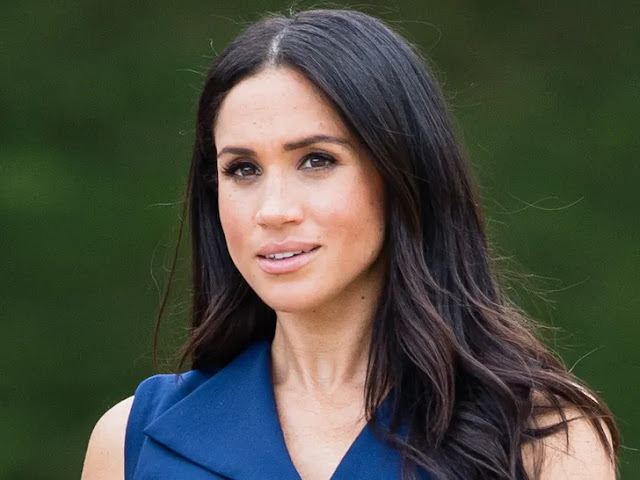Prince Harry facing an estimated £1million legal bill after losing High Court security ruling in Home Office battle
Prince Harry faced a significant setback after losing his High Court challenge against the Home Office regarding the downgrade of his taxpayer-funded personal security during visits to Britain. Despite arguing that this decision could endanger his family, including his wife Meghan and their two children, court documents revealed his concerns were not sufficient to sway the judgment. Retired High Court judge Sir Peter Lane rejected Harry's application for a judicial review, which could potentially lead to Harry bearing substantial legal costs, including those of his own lawyers as well as those of the Home Office, potentially totaling up to £1 million.
 |
Prince Harry and Meghan Markle stand outside Kensington Palace after announcing their engagement in November 2017
The legal battle surrounding Prince Harry's security downgrade has incurred substantial costs for both sides. The Home Office disclosed that by October of the previous year, it had already spent £407,000 on legal expenses related to the case, and this was before the trial itself commenced in December. On the other hand, Prince Harry engaged the services of law firm Schillings International and four barristers to represent him, potentially escalating his personal legal costs even further.
The Duke of Sussex, pictured leaving the Royal Courts of Justice in London on March 30, 2023
Prince Harry's decision to take legal action stemmed from the Executive Committee for the Protection of Royalty and Public Figures (Ravec) informing him of the reduction in his publicly-funded protection during visits to the UK. His legal team argued that he was unfairly targeted and treated unfavorably in comparison to others in the same situation, emphasizing his concerns about the safety of his family.
During the court proceedings, it was revealed that Harry's European security director had highlighted a threat from Al Qaeda, which had called for his assassination. These security concerns underscored the gravity of the situation and the importance Harry placed on maintaining adequate protection for himself and his family.
The Duke and Duchess of Sussex attend an event in Whistler near Vancouver in the build up to the 2025 Invictus Games
The court proceedings shed light on the seriousness of the security concerns Prince Harry faced. It was revealed that a terrorist group, purportedly Al Qaeda, had issued a threat against him following the publication of his book "Spare," in which he detailed his military experiences, including the killing of 25 Taliban fighters in Afghanistan.
Prince Harry making pre-flight checks in the cockpit at Camp Bastion in Afghanistan in 2012
Additionally, a letter from Harry's private secretary, Fiona Mcilwham, addressed to the Cabinet Office, emphasized the heightened risks faced by Harry and his family due to racism and extremism. Harry himself expressed his disbelief at the decision to reduce his security, particularly in light of the increased dangers and the tragic history of his mother, Princess Diana, who died in a car crash while being pursued by paparazzi.
William, Harry, Meghan and Charles speak together at a service at Westminster Abbey in March 2019 - the year before the Sussexes stepped down as senior royals and moved to the US
In his plea to maintain Metropolitan Police (MET) security, Harry highlighted specific threats, although these details were redacted from the court documents. He criticized the decision to remove his security as punitive and lacking in consultation, asserting that his family's safety should be prioritized.
Despite these compelling arguments, the Government maintained its stance that Ravec was justified in its decision-making process, arguing that Harry's security should be tailored to his specific circumstances on a case-by-case basis.
Ultimately, retired High Court judge Sir Peter Lane rejected Harry's application for judicial review, stating that there was no evidence of unlawfulness or procedural unfairness in Ravec's decision. This ruling signifies a significant setback for Prince Harry in his efforts to secure adequate protection for himself and his family.
Prince Harry's spokesperson announced his intention to appeal the decision, emphasizing his desire for fair treatment and adherence to Ravec's own rules regarding security protocols. The Duke's legal team argued that Ravec had failed to apply its written policy correctly in February 2020, leading to Harry's exclusion from a specific risk analysis. They contended that the "bespoke process" tailored for Harry was insufficient and not a substitute for a comprehensive risk assessment.
The spokesperson expressed Harry's hope for justice through the Court of Appeal while refraining from further comment on the ongoing case. However, the Duke must first receive approval from a judge to proceed with the appeal.
The judgment summary released earlier stated that the court found no unlawfulness or procedural unfairness in Ravec's decision-making process. Despite Harry's legal team's arguments, the court deemed the decision rational and forward-looking. Sir Peter Lane, in his ruling, criticized Harry's lawyers for their interpretation of the Ravec process but affirmed the legality of the "bespoke" security arrangement devised for Harry in February 2020.
Sir Peter Lane's ruling underscored several key points regarding the decision-making process and the evidence presented in the case. He highlighted the significance of witness evidence provided by the defendant, which demonstrated the absence of irrationality or unlawfulness in the treatment of other VIPs by Ravec. Additionally, the judge emphasized the relevance of a "draft options paper" presented to Prince Harry by Sir Edward Young, outlining the decision-making authority of the Home Secretary delegated to the chair of Ravec.
The judge refuted claims of procedural unfairness, particularly regarding Prince Harry's private secretary, Fiona Mcilwham, stating that there was no evidence to suggest she was unaware of security issues. He commended her understanding of the job based on her communications and meetings with relevant officials.
Furthermore, Sir Peter dismissed Harry's objection to the 28-day notice requirement for travel to Britain, attributing it to the necessity of addressing security concerns effectively.
Sir Peter Lane's ruling emphasized the importance of evidence in evaluating the necessity of the 28-day notice requirement for Prince Harry's travel to Britain. He indicated that such a decision would need to be supported by evidence and could not be arbitrary or extraneous. The judge noted that Prince Harry's legal team had not provided any evidence to suggest that the requirement was unreasonable or unjustified.
In response to the ruling, a spokesperson for the Home Office expressed satisfaction with the court's decision, affirming the government's position. The spokesperson reiterated the government's commitment to a rigorous and proportionate protective security system while maintaining a policy of not disclosing detailed information to safeguard its integrity and individuals' security.
Sir Peter's decision to redact certain information from his ruling was guided by concerns about the potential adverse impact on individuals and national security if such information were made public. This underscores the sensitive nature of the case and the need to balance transparency with security considerations.






Comments
Post a Comment